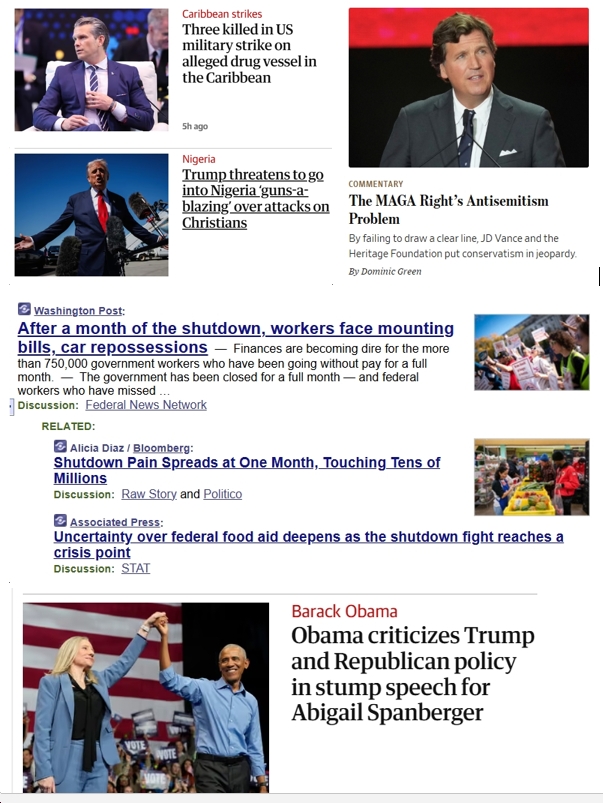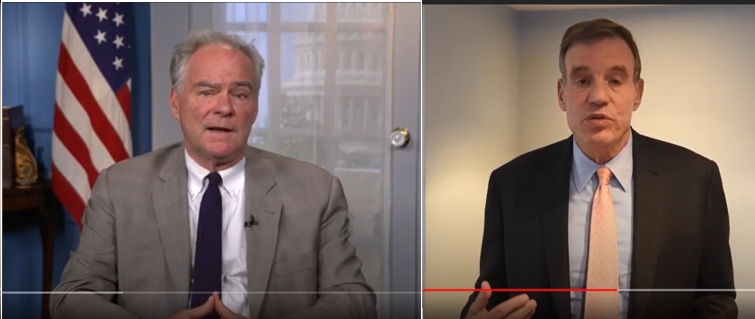You might have seen some media stories (e.g, see here) about a Medicaid-related lawsuit filed by doctors and hospitals. In short:
A coalition of Virginia hospitals and physicians is suing the state’s Medicaid program over emergency budget cuts that they say will cost them $55 million in reduced payments for emergency room visits this year during a public health emergency when they can least afford it.
The Virginia Hospital & Healthcare Association, the Medical Society of Virginia and the Virginia College of Emergency physicians filed the suit in federal court last week. They allege that Medicaid budget cuts approved by the General Assembly in April “will cause irreparable harm not only to needy patient populations, but also to hospitals and physician practices themselves, which are already struggling with increased costs and decreased revenue due to the challenges of the COVID-19 pandemic.”
The assembly approved the cuts to Medicaid reimbursements for providers during its reconvened session on April 22, when it also suspended more than $2 billion in planned spending in response to the sharp economic downturn caused by the coronavirus crisis.
Now clearly, states – including Virginia – are hurting, “bigly,” facing an “economic tsunami,” largely thanks to Trump’s botched COVID-19 response and the severe Trump recession – two calamities that a capable leader could have at least ameliorated with intelligent, timely policies. (just a reminder: other countries, such as New Zealand, have largely managed to deal with the deadly coronavirus and to get their economies going again, with comprehensive and science-based shutdown plans, as opposed to the lurching, hodgepodge national “strategy” – in air quotes – we’ve had here). But nope, not in Trump’s America. So it’s totally understandable why states are looking to cut their spending, particularly given the fact that, unlike the federal government, states can’t print money AND have to balance their budgets. Which leaves them in a very tough position, with the only choice really being where and how much exactly to cut.
This week, of course, the General Assembly is coming back to Richmond for a special session to address Virginia’s more-than-$2 billion budget hole caused by declining revenues associated with the Trump virus and the Trump recession. Unfortunately, we’re probably talking about serious cuts to the major areas of expenditure – overwhelmingly education and health ($22 billion *each* in the FY2021 budget, or about two-thirds of the $67 billion in total operating expenses). That means things like hits to teacher pay, “at-risk add-ons,” school infrastructure, pre-k education, and…Medicaid, which makes up a huge chunk of Virginia’s overall health budget.
Since this debate over Medicaid funding could very well be a tension point in the budget revision work in coming weeks, we did some research to get a better handle on this issue. That includes talking to folks who are a LOT more knowledgeable about this stuff than any of us here at Blue Virginia are. Which is why the following probably sounds a lot smarter about this complex issue than we are. 😉
So what I’m hearing is that Virginia’s two-year state budget includes two changes (see page 369 in this document) to the state’s Medicaid policy, just two years after the Commonwealth finally expanded Medicaid eligibility in 2018 – years later than we should have because of Republicans’ resistance to helping people in need. The danger is that due to COVID-19, budget cuts to Medicaid could represent a significant step backwards from the gains made through Medicaid coverage expansion.
In this case, one budget change directs the state Department of Medical Assistance Services (DMAS, aka the Medicaid agency) to retroactively cut reimbursements to doctors who provide emergency room care to Medicaid patients if the agency decides the reason for care wasn’t actually an emergency. Along these lines, I’m told that the state has defined 800 (!) scenarios in which reimbursements will be cut to – seriously – as low as $14.98. Now, obviously, that doesn’t mean that a Medicaid patient’s life is worth $14.98, but seriously, how much can you get for $14.98 these days in any area, let alone healthcare?
Keep in mind that doctors and hospitals have no control over who comes to the emergency room — and that hospitals are required by federal law to treat all patients seeking emergency department care, regardless of whether they are insured or can pay for treatment. Which means that emergency care is basically the exact opposite of something a hospital would want to provide, if it were acting 100% out of economic self-interest. That’s ok, in part because hospitals can make money elsewhere, but it’s just a fact that slashing reimbursements even further will hurt hospitals’ bottom lines.
Another issue is whose responsibility it should be to ensure that Medicaid patients seek care in the proper setting. It certainly doesn’t seem like that should be the responsibility of providers. In fact, I’m told that it’s actually the responsibility of the Medicaid “managed care” organizations (aka, insurance companies) under contract with the state to provide coverage to Medicaid beneficiaries. These big insurers, by the way, are many of the same companies that the New York Times recently reported have made billions in profits during the pandemic while American and the economy suffers. So it’s kinda hard to feel sorry for them.
It’s also worth noting that Virginia’s own managed care services contract for insurers requires them to educate members about appropriate care settings, and that the contract clearly states the “contractor may not retroactively deny a claim for an emergency screening because the condition, which appeared to be an emergency medical condition under the ‘prudent layperson’ standard…was in fact non-emergency in nature.” All of which means that, instead of holding insurers accountable, it’s quite possible that hospitals and other health care providers could end up being the ones who are penalized.
As if that’s bad enough, another provision in the budget further impacts Medicaid policy by cutting in half reimbursements to providers when a hospital patient is readmitted for care within 30 days of a discharge. This policy again places the onus on health care providers for things beyond their control, such as flare ups in Medicaid patients with chronic conditions, and/or home and environmental factors that impact their health.
So again, while clearly Virginia is going to have to make painful cuts, including to VERY important areas such as education and healthcare, the goal should be to do whatever we can to avoid hurting the most vulnerable members of our society, such as Medicaid recipients…in the midst of a deadly, global pandemic, no less. Another goal should be to do whatever we can to avoid hurting health care providers who have been on the “front lines” of battling this “biological war,” as Gov. Northam correctly calls it.
Speaking of health care providers, they’ve been hemorrhaging money for months now, due to the effects of the COVID-19 pandemic. Why? Basically, they’ve been hit on both the expenditure and revenue sides of the equation — having to increase spending on COVID-19 testing, supplies, and other resources *while simultaneously* losing a ton of revenues due to the precautionary cancellation of revenue-generating surgical procedures this spring, and because hospital emergency department volumes remain lower than normal because people are avoiding hospital care out of (mostly misplaced) fears that they could be exposed to the virus. Of course, fewer patients means fewer Medicaid claims, which means lower state savings from provider reimbursement cuts than are perhaps being expected.
Again, it’s clear that the General Assembly has an obligation to pass a balanced budget. It also needs to run an efficient, effective Medicaid program for Virginia’s nearly 1.5 million program beneficiaries. The question for the upcoming special session is whether proposed budget cuts properly balance the need for cutting expenditures during a time of massive budgetary pressures and a deadly pandemic, while also protecting the most vulnerable members of our Commonwealth…including, of course, communities of color, which have been disproportionately hurt by the pandemic and the pandemic-induced recession. What are the options here – either on the expenditure or revenues side?
In sum: This Tuesday, as the General Assembly returns to Richmond to plug a massive budget hole and to address other important issues – equity, policing and criminal justice reform, etc. – the goal should be to balance Virginia’s budget responsibly, without harming health care providers and Medicaid patients as we continue to fight the “biological war” we find ourselves waging. Good luck to our legislators…they will need it!





![[UPDATED: VA Senate Dems Pass $15/Hour Minimum Wage Bill] VA House Democrats Pass Top Priority, Paid Sick Leave](https://bluevirginia.us/wp-content/uploads/2026/02/housedemspaidsick.jpg)












